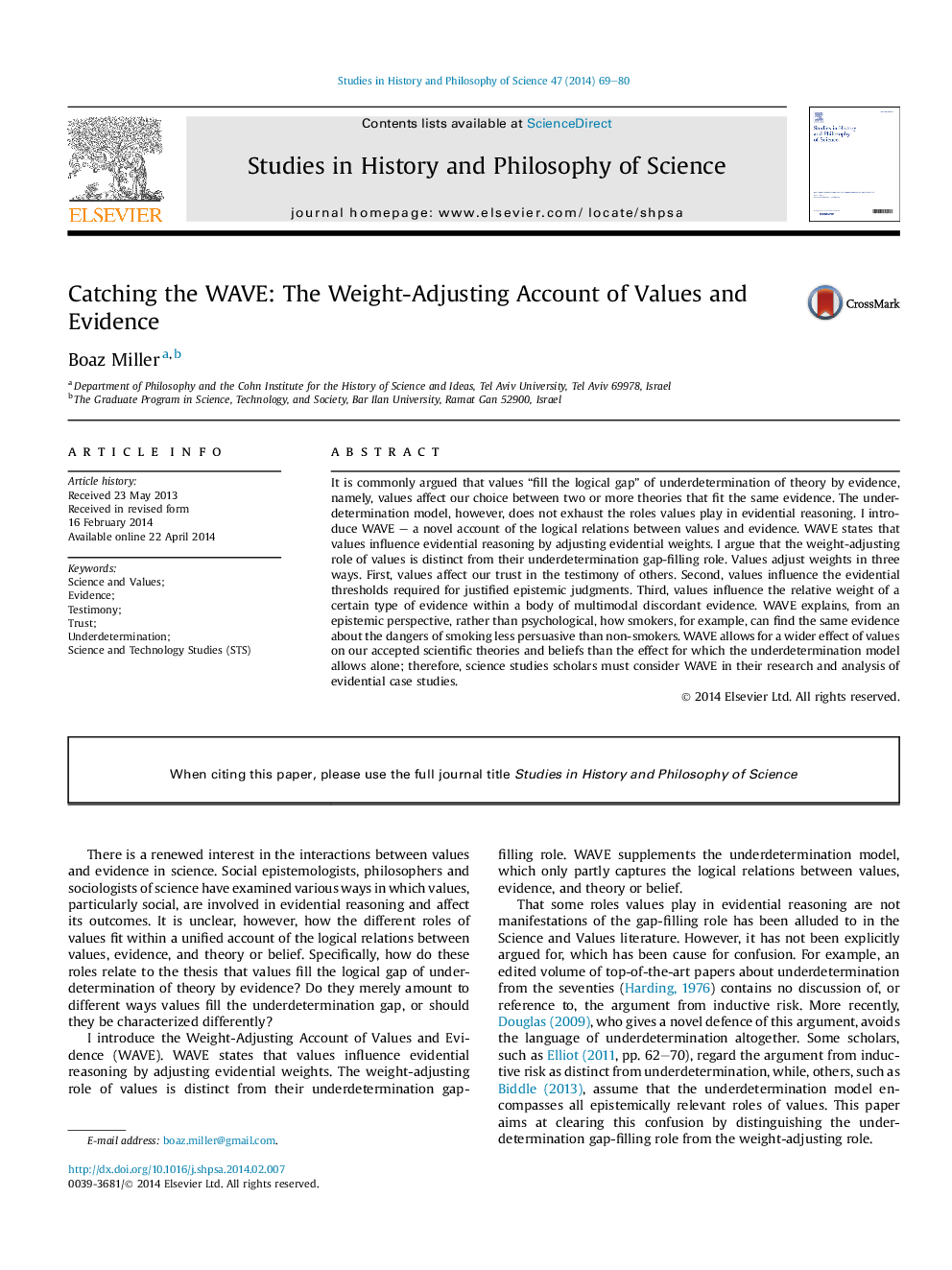| Article ID | Journal | Published Year | Pages | File Type |
|---|---|---|---|---|
| 1160875 | Studies in History and Philosophy of Science Part A | 2014 | 12 Pages |
•Values affect evidential reasoning by adjusting evidential weights in three ways.•First, values affect trust in testimony.•Second, values influence evidential thresholds for justified epistemic judgments.•Third, values influence relative weighing of discordant evidence.•WAVE is distinct from the model of underdetermination of theory by evidence.
It is commonly argued that values “fill the logical gap” of underdetermination of theory by evidence, namely, values affect our choice between two or more theories that fit the same evidence. The underdetermination model, however, does not exhaust the roles values play in evidential reasoning. I introduce WAVE – a novel account of the logical relations between values and evidence. WAVE states that values influence evidential reasoning by adjusting evidential weights. I argue that the weight-adjusting role of values is distinct from their underdetermination gap-filling role. Values adjust weights in three ways. First, values affect our trust in the testimony of others. Second, values influence the evidential thresholds required for justified epistemic judgments. Third, values influence the relative weight of a certain type of evidence within a body of multimodal discordant evidence. WAVE explains, from an epistemic perspective, rather than psychological, how smokers, for example, can find the same evidence about the dangers of smoking less persuasive than non-smokers. WAVE allows for a wider effect of values on our accepted scientific theories and beliefs than the effect for which the underdetermination model allows alone; therefore, science studies scholars must consider WAVE in their research and analysis of evidential case studies.
